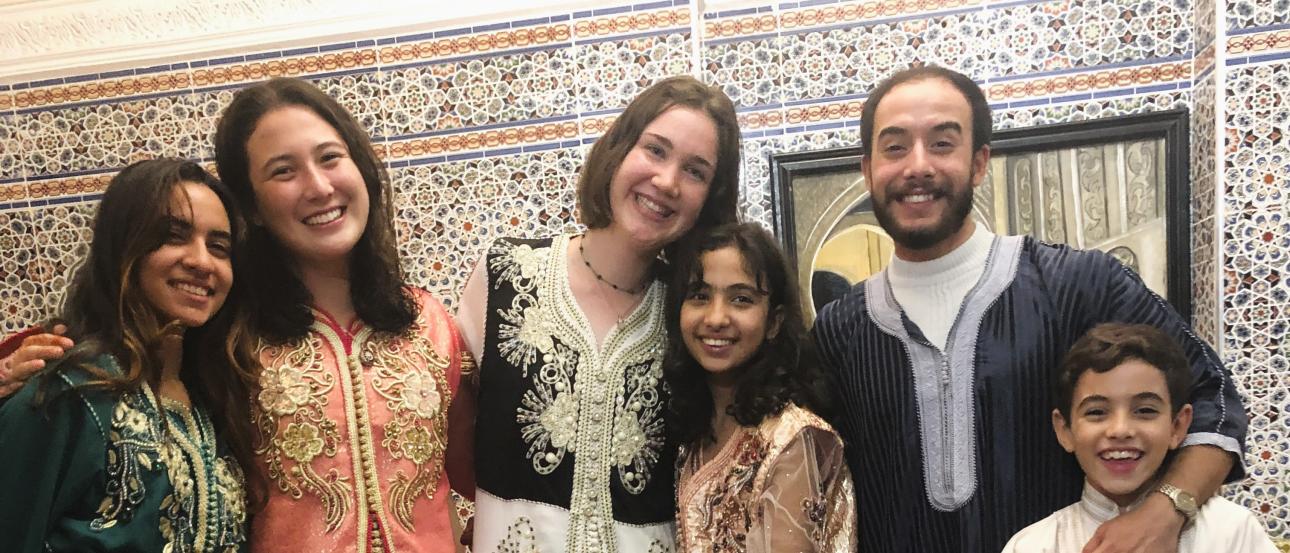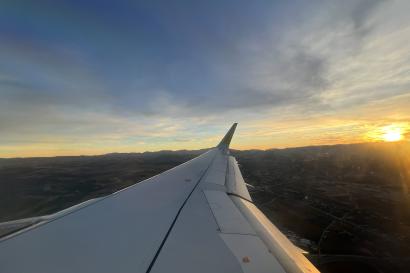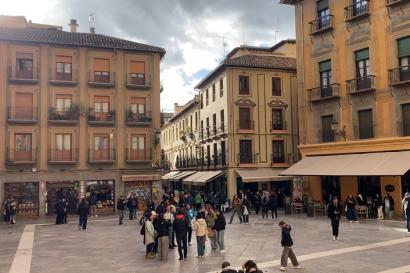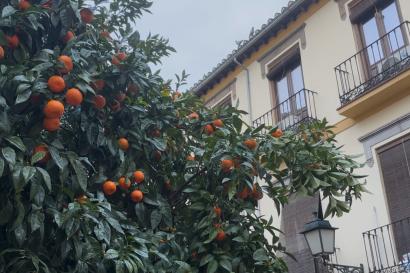Each semester, IES Abroad Granada hosts a 5-day trip to Morocco—and, last week, we returned from ours. The word “trip,” though, doesn’t really encapsulate the experience: 5 cities, a multi-night homestay, 2 ferries, and over 30 hours on a minibus (for which my stomach is still, unfortunately, paying the consequences) within the span of 5 days felt more like a modern Odyssey than a “trip.”
How does one capture such an expedition without over-simplifying the complexities that inevitably arise from such an experience? How to discuss the overwhelming kindness and welcome that I received from my host family, while also acknowledging the unshakable discomfort and sense of non-belonging I felt as a foreigner in a Muslim country? What should one think of the Moroccan king who continues to arrest political dissidents but, at the same time, enjoys mass popularity? How can I describe the conflicting feelings I have about befriending the same Moroccan students who gawked at my friends’ non-heterosexuality? And how are these judgements are colored by my own ethnocentrism?
These dualities are hard to sit with. During one or two-day trips, it’s easy—almost inevitable, really—to make snap judgements about a city or country. But Morocco resisted such classification.
Take, for instance, the position of women in Moroccan society. As a female, I came to Morocco with preconceived notions about the treatment of women in Islamic countries—and, throughout the trip, I found that these ideas were both confirmed and challenged. It’s true, for instance, that female bodies are heavily monitored in public spaces: when a student bent down to pick up her phone and accidentally exposed part of her midriff during a visit to a rural village, for instance, she was quickly told by IES Abroad staff that she “had to cover up” lest she offend our hosts. And yet, when students traveled to the hammam (Arab bath house), bathing amongst women of all ages and body types without judgement felt liberating in a way that I haven’t experienced in the body-conscious culture of the United States. The juxtaposition between the obligation to hide the female body in public with the sense of body positivity shared in the hammam left me perplexed as to how such contrasting ideas can exist in the same culture.
The theme of socioeconomic status and privilege was also especially prevalent during our trip: in the tourist town of Chefchaouen, for instance, IES Abroad staff encouraged students to haggle in the markets rather than accepting the price at face value. While the storekeepers I encountered surely inflated the prices (especially when my foreigner status became apparent), it felt wrong to haggle over 40 dirham that likely meant more to the storekeeper than to me. Another moment of socioeconomic discomfort took place at the school of Dar Taliba de Arjat, an all-girl’s school in the outskirts of Rabat. At the school, IES Abroad arranged a volunteering opportunity that consisted of IES Abroad students painting a mural on the school, grouting the stone wall surrounding the property, and picking trash up around the grounds. While our Moroccan orientation guide assured us that the girls would appreciate our work, the whole activity felt somewhat contrived: rather than the Moroccan girls (who we never even met), it felt like we were the focus—almost protagonists—of the activity. Was what we were doing necessary? Would the girls appreciate it? The whole experience only seemed to reinforce our position of privilege, and I came away torn about how a seemingly “good” activity could also produce negative consequences.
The Morocco trip is one of the most unique aspects of the Granada program, and rightfully so: while you can surely go to Morocco for a weekend, the level of cultural immersion that our 5-day experience gave us was unique. It’s strange to simultaneously appreciate a culture and disagree with it—but learning how to sit with those two opposing truths is simply a part of experiencing new cultures.
Regardless, I’m grateful to be back in Granada—it’s strange (but comforting) to think now that, once, Spain was as foreign to me as Morocco was. After two months, Granada feels at last like home.

Caroline Hallmark
Hola! My name is Caroline (she/her), and I am a rising junior at Bowdoin College studying History and Economics with a minor in Mathematics. Beyond the classroom, I’m a Wordle enthusiast and love spending time outside (though I am a notoriously slow walker). Another fact about me--I love the em-dash. Looking forward to sharing a sliver of my life here in Granada!








